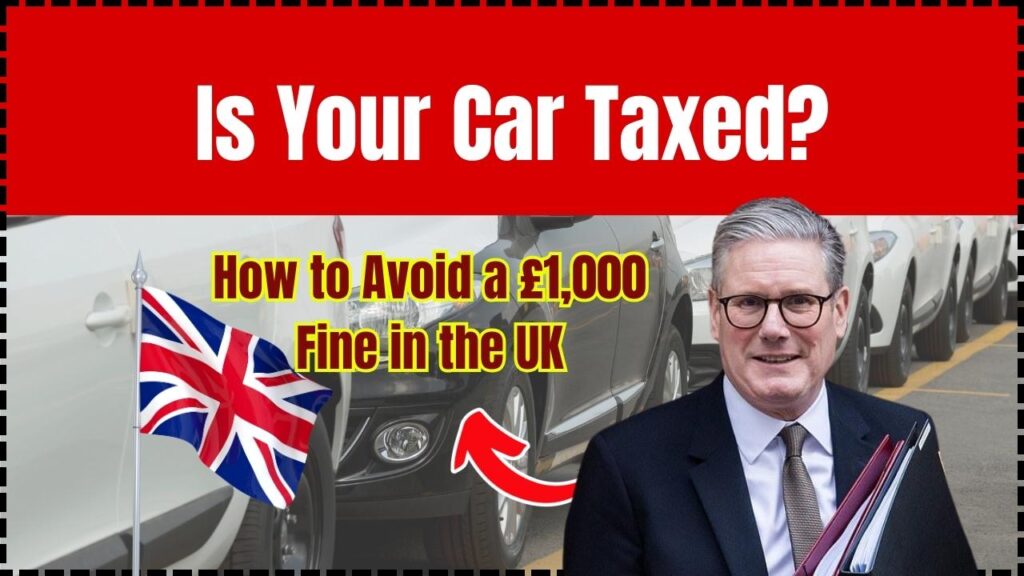Is Your Car Taxed? Ensuring your vehicle is properly taxed is a legal requirement in the UK. Driving an untaxed vehicle can lead to severe penalties, including fines up to £1,000, vehicle clamping, and even impoundment. To avoid these costly consequences, it’s essential to check your car’s tax status regularly and understand how to keep it up to date. This comprehensive guide explains how to check if your car is taxed, the consequences of not doing so, and practical steps to stay compliant with UK vehicle tax laws.
Is Your Car Taxed?
Ensuring your vehicle is taxed is not only a legal requirement but also essential for avoiding fines and penalties. By regularly checking your car tax status, setting up reminders, and staying informed about exemptions and SORN declarations, you can stay compliant and avoid costly consequences. For more information, visit the GOV.UK vehicle tax page.

| Feature | Details |
|---|---|
| Penalty for Untaxed Vehicle | Fines up to £1,000 and potential vehicle clamping or impoundment. |
| How to Check Vehicle Tax | Visit the GOV.UK vehicle tax checker and enter your vehicle’s registration number. |
| Exemptions | Electric vehicles, historic vehicles (over 40 years old), and vehicles used by disabled persons may be exempt but still require registration. |
| SORN Declaration | If your vehicle is off the road, declare it with a Statutory Off Road Notification (SORN) to avoid tax obligations. |
| Reminder Services | Sign up for free reminders via the DVLA Driver and Vehicles account to avoid missing tax renewal dates. |
Why Is Car Tax Important in the UK?
Vehicle Excise Duty (VED), commonly known as car tax, is mandatory for most vehicles driven or parked on public roads in the UK. The funds collected contribute to maintaining the country’s road infrastructure. The amount payable depends on factors such as the vehicle type, engine size, and CO₂ emissions.
Consequences of Driving an Untaxed Vehicle
Driving an untaxed vehicle is illegal and can result in:
- Fines Up to £1,000: Issued by the Driver and Vehicle Licensing Agency (DVLA). If taken to court, fines can be higher.
- Vehicle Clamping or Impoundment: Untaxed vehicles can be clamped or seized by enforcement agencies.
- Prosecution: Continuous non-compliance can lead to legal action and court proceedings.
How to Check Is Your Car Taxed?
Checking your vehicle’s tax status is quick and easy. Follow these steps:
- Visit the GOV.UK Vehicle Tax Checker
- Go to the GOV.UK vehicle tax checker page.
- Enter Your Vehicle’s Registration Number
- Input the registration number exactly as it appears on your vehicle.
- Review the Tax Status
- The system will display your vehicle’s tax status and the expiration date.
Regularly checking your vehicle’s tax status ensures compliance and helps you avoid unexpected fines.
How to Tax Your Vehicle?
If your vehicle is untaxed or nearing its expiration, follow these steps:
- Gather Necessary Documents:
- V5C Registration Certificate (Logbook): Proof of vehicle ownership.
- Payment Method: Credit/debit card or bank details for Direct Debit.
- Tax Your Vehicle Online:
- Visit the GOV.UK vehicle tax service.
- Follow the prompts to enter your vehicle details and payment information.
- Alternative Methods:
- Post Office: Visit a local branch that deals with vehicle tax.
- Phone: Contact the DVLA vehicle tax service.
Exemptions and Special Cases
Certain vehicles are exempt from paying vehicle tax, including:
- Electric Vehicles (EVs): Exempt due to zero emissions.
- Historic Vehicles: Vehicles over 40 years old.
- Disabled Persons’ Vehicles: Vehicles used by or for disabled individuals.
Even if exempt, you must still register your vehicle for tax to ensure records are up to date.
Declaring a Vehicle Off the Road (SORN)
If you intend not to use your vehicle and keep it off public roads:
- Declare a SORN:
- Visit the GOV.UK SORN service.
- Provide the necessary vehicle details and the date you want to declare it off the road.
- Storage Requirements:
- Keep the vehicle on private property (e.g., a garage or driveway).
A SORN exempts you from paying vehicle tax and insuring the vehicle, but it must not be driven on public roads unless going to a pre-booked MOT test.
Setting Up Tax Reminders
To avoid missing your vehicle tax renewal:
- DVLA Reminder Service: Sign up for email or text reminders through the DVLA Driver and Vehicles account. This free service notifies you when your tax is due, helping you stay compliant and avoid fines.
Tips to Avoid Car Tax Fines
- Check Your Tax Status Regularly: Use the GOV.UK vehicle tax checker to stay informed.
- Sign Up for Reminders: Utilize the DVLA reminder service to receive timely notifications.
- Report Changes Promptly: Update your address, vehicle ownership, or use status to avoid complications.
- Pay On Time: Set reminders for tax payments, especially if using Direct Debit.
UK Car Tax Check: How to Verify Your Road Tax Status Instantly
How to Check If Your Car Is Taxed in the UK – Avoid Fines!
DVLA Vehicle Check—Find Out Hidden Details About Any Car Instantly!
Frequently Asked Questions (FAQs)
1. What happens if I drive without vehicle tax?
Driving without valid vehicle tax can result in fines up to £1,000, and your vehicle may be clamped or impounded.
2. How can I check if my car is taxed?
Visit the GOV.UK vehicle tax checker and enter your vehicle’s registration number.
3. Are electric vehicles exempt from car tax?
Yes, electric vehicles (EVs) are currently exempt from vehicle tax due to their zero emissions.
4. What is a SORN?
A Statutory Off Road Notification (SORN) is a declaration to DVLA that a vehicle is not being used on public roads, exempting it from tax and insurance requirements.
5. Can I pay my vehicle tax in installments?
Yes, vehicle tax can be paid annually, biannually, or monthly via Direct Debit.







